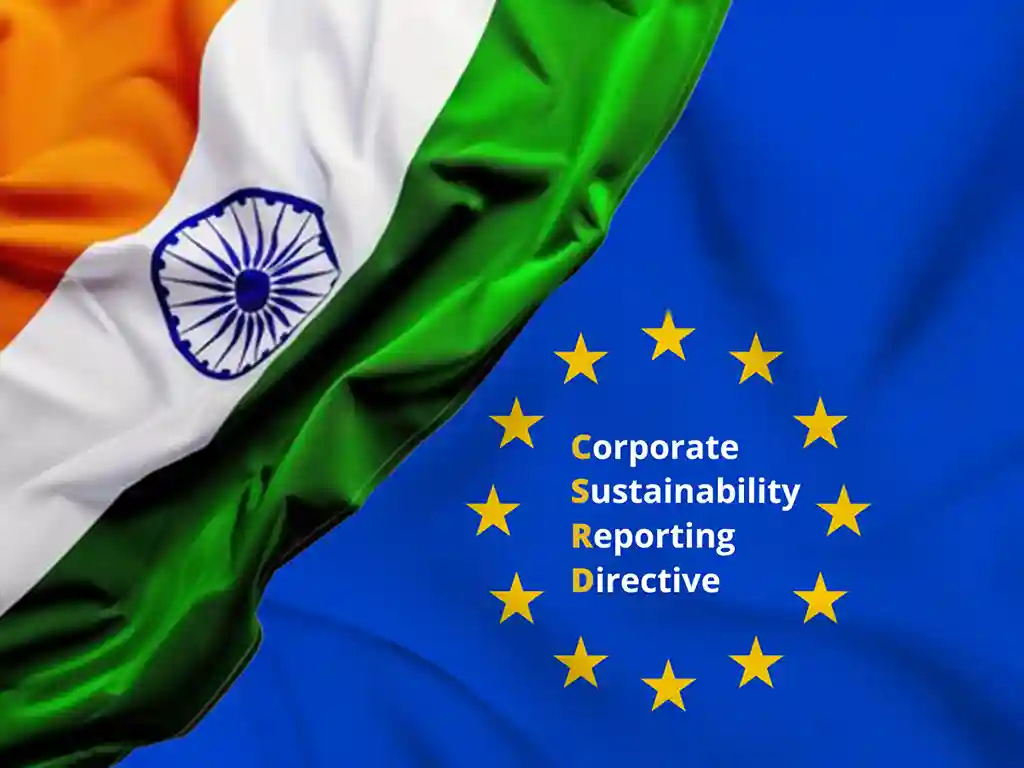
CEROED PTE LTD
25 Bukit Batok Crescent #09-05,
Singapore 658066
info@ceroed.com
www.ceroed.com
CeroED Technologies Pvt Ltd
17/1680/5, 1st floor,
CHELSMA HEIGHTS, Poojappura, Thiruvananthapuram 695012
Copyright @CeroED 2023. All rights reserved.

The European Union’s Corporate Sustainability Reporting Directive (CSRD) is reshaping how sustainability is measured and disclosed not just in Europe, but across global value chains and Indian exporters are directly in its path. Even if your business isn’t based in the EU, selling to EU based companies means your ESG practices will soon come under scrutiny. The CSRD introduces both new pressures and significant opportunities for Indian exporters, driving a shift towards more responsible, transparent and resilient business practices.
What is CSRD?
The Corporate Sustainability Reporting Directive (CSRD) is a European Union (EU) directive that mandates large companies to report on their environmental, social, and governance (ESG) impacts. The CSRD, adopted by the EU in 2022, significantly expands sustainability disclosure requirements. It aims to provide clear and comparable information on sustainability performance, helping investors and other stakeholders assess the risks and opportunities associated with a company’s sustainability practices. The CSRD builds upon the Non-Financial Reporting Directive (NFRD) and expands the scope and reporting requirements.
Key highlights of the CSRD
Under the CSRD, all affected companies must report on their environmental, social, and governance (ESG) impacts in detail.
Who Needs to Comply?
So why should Indian exporters care?
Because EU companies are passing the pressure downstream demanding ESG compliant data from their suppliers, even if those suppliers aren’t legally bound by CSRD. This means Indian companies with significant business ties to the EU or those that are part of EU companies supply chains could be indirectly obligated to align with CSRD requirements.
Though Indian companies may not fall directly under the CSRD’s legal scope, they play a critical role in the global supply chains of EU-based firms. The directive requires EU companies to evaluate and disclose the ESG performance of their supply chain partners. As a result, Indian exporters are now part of the compliance conversation. If EU buyers are to meet their CSRD obligations, they need their Indian suppliers to demonstrate responsible practices and provide relevant ESG data.
Impact on Indian Exporters:
How CeroED can add value!
Indian exporters are under growing pressure to align with global ESG and carbon disclosure standards as the European Union’s Corporate Sustainability Reporting Directive (CSRD) takes effect. In response, CeroED’s ARRO platform empowers businesses to navigate this evolving regulatory landscape with confidence. By integrating frameworks like CSRD and other global ESG standards, ARRO enables companies to set industry-specific goals, track their performance and ensure compliance with CSRD requirements which streamlines the path toward sustainable growth and global market access. CeroED’s ARRO platform supports this shift by offering end-to-end ESG solutions that help exporters track, verify and transparently report their sustainability performance. Some features of ARRO are:
Want to know how ARRO operates?
Email us at info@ceroed.com
Visit www.ceroed.com
#CSDR #ESG #CeroED #ARRO #Sustainability

CEROED PTE LTD
25 Bukit Batok Crescent #09-05,
Singapore 658066
info@ceroed.com
www.ceroed.com
CeroED Technologies Pvt Ltd
17/1680/5, 1st floor,
CHELSMA HEIGHTS, Poojappura, Thiruvananthapuram 695012
Copyright @CeroED 2023. All rights reserved.
